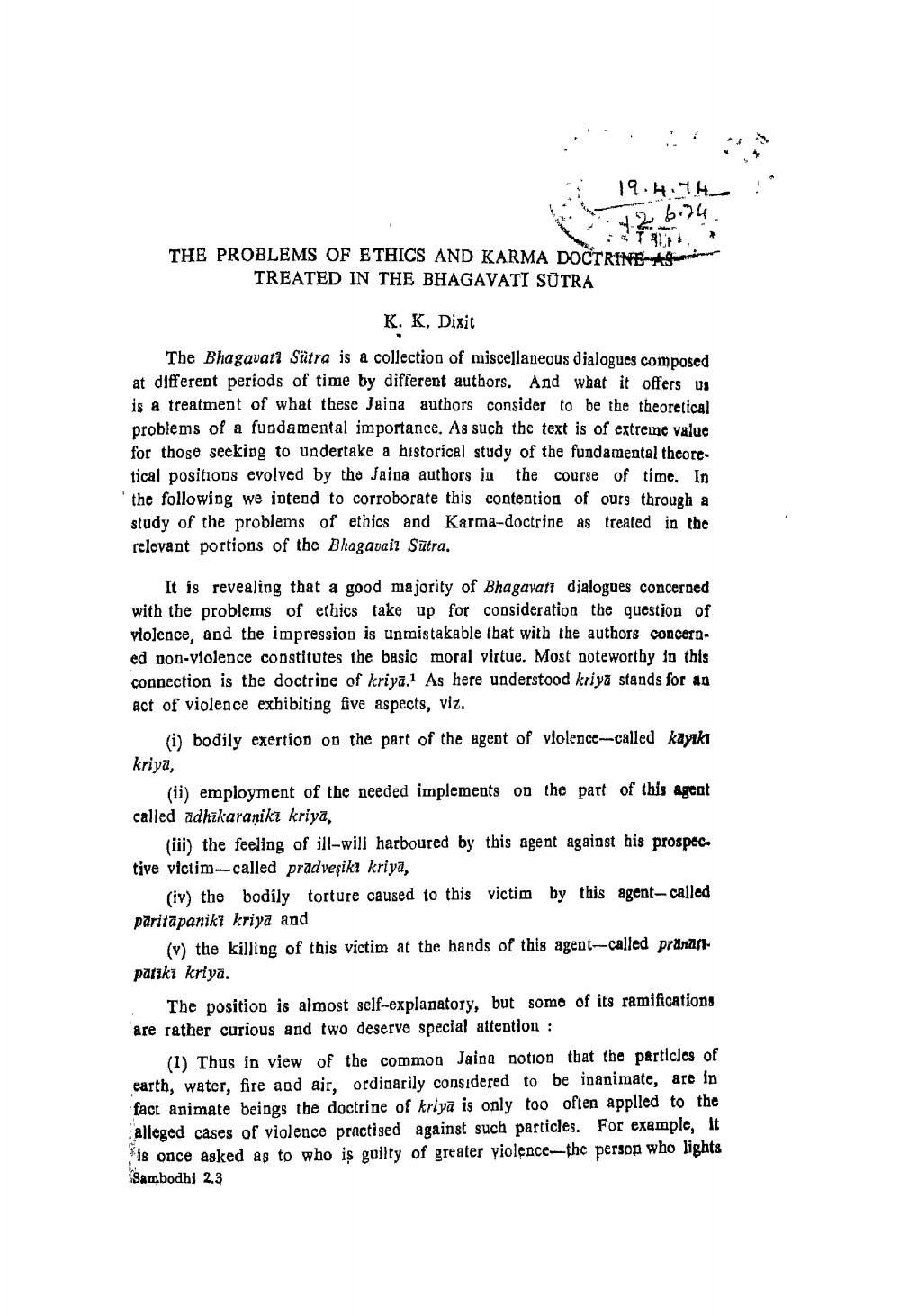________________
19.4.7
:
26.74
THE PROBLEMS OF ETHICS AND KARMA DOCTRINE-fwmiram
TREATED IN THE BHAGAVATI SÜTRA
K. K. Dixit The Bhagavati Sütra is a collection of miscellaneous dialogues composed at different periods of time by different authors. And what it offers us is a treatment of what these Jaina authors consider to be the theoretical problems of a fundamental importance. As such the text is of extreme value for those seeking to undertake a historical study of the fundamental theoretical positions evolved by the Jaina authors in the course of time. In the following we intend to corroborate this contention of ours through a study of the problems of ethics and Karma-doctrine as treated in the relevant portions of the Bhagavail Satra.
It is revealing that a good majority of Bhagavati djalogues concerned with the problems of ethics take up for consideration the question of violence, and the impression is unmistakable that with the authors concerned non-violence constitutes the basic moral virtue. Most noteworthy in this connection is the doctrine of kriya.- As here understood kriya stands for an act of violence exhibiting five aspects, viz.
(i) bodily exertion on the part of the agent of violence--called kayıkı kriya,
(ii) employment of the needed implements on the part of this agent called adhikaraniki kriya,
(iii) the feeling of ill-will harboured by this agent against his prospec. tive victim--called pradveșiki kriya,
(iv) the bodily torture caused to this victim by this agent-called paritāpaniki kriya and
(v) the killing of this victim at the hands of this agent--called pranasipariki kriya.
The position is almost self-explanatory, but some of its ramifications are rather curious and two deserve special attention :
(1) Thus in view of the common Jaina notion that the particles of earth, water, fire and air, ordinarily considered to be inanimate, are in fact animate beings the doctrine of kriya is only too often applled to the alleged cases of violence practised against such particles. For example, It is once asked as to who is guilty of greater yiolence-the person who lights Sambodhi 2.3




